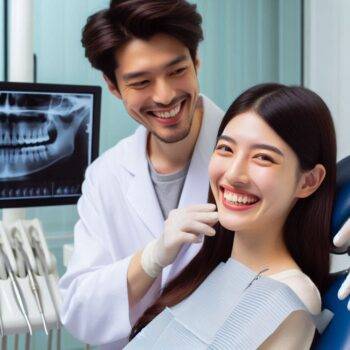
Navigating healthcare in a foreign country can be daunting, and dental care is no exception.
For expats in China, understanding the dental care system, finding reputable dentists, and budgeting for procedures are essential for maintaining oral health.
This guide provides practical advice, cost estimates, and resources to help you access quality dental care while living in China.
Understanding the Dental Care System in China
China’s dental care system includes both public and private services, each with its own advantages and challenges.
Knowing the differences can help you make informed decisions about your care.
Public Dental Care
- Affordability: Public dental care is generally more affordable than private clinics, making it a good option for routine procedures.
- Challenges: Public clinics are often located in hospitals, where waiting times can be long, and language barriers may arise as most staff primarily serve local residents.
- Quality: The quality of care can vary significantly depending on the hospital and location. Larger cities like Beijing and Shanghai tend to have better-equipped public facilities.
Private Dental Care
- Personalized Service: Private clinics offer shorter waiting times, more personalized care, and often cater to expats.
- English-Speaking Staff: Many private clinics in major cities have English-speaking staff, making communication easier for foreigners.
- Higher Costs: Private care is significantly more expensive than public options, but the quality and convenience often justify the price.
External Resources:
- China Stomatological Association (in Chinese): A resource for finding accredited dental professionals.
- Expat Health Insurance Providers: A guide to international health insurance plans that include dental coverage.
Finding a Reputable Dentist
Ensuring you receive quality care starts with finding a trustworthy dentist.
Here are some practical tips:
- Ask for Recommendations: Fellow expats, colleagues, or local friends can provide valuable insights based on their experiences. Expat forums like Internations or Reddit’s China expat community are great places to start.
- Check Online Reviews: Websites like Google Reviews and Yelp often have ratings and reviews for dental clinics in major cities.
- Visit International Clinics: Many international hospitals and clinics in cities like Beijing, Shanghai, and Guangzhou have dental departments catering to expats. Examples include:
- Verify Credentials: Check if the dentist is a member of reputable organizations like the Chinese Stomatological Association or international dental associations.
Common Dental Procedures and Costs
Understanding the costs of common dental procedures in China can help you plan your budget.
Below are approximate costs for various treatments:
- Routine Check-Ups and Cleanings:
- Cost: ¥200 – ¥800
- Essential for maintaining oral health and preventing issues.
- Fillings:
- Cost: ¥500 – ¥1,500 per tooth
- Used to treat cavities and restore damaged teeth.
- Root Canal Treatment:
- Cost: ¥1,500 – ¥4,000 per tooth
- Necessary to save a tooth that is severely infected or decayed.
- Crowns:
- Cost: ¥2,000 – ¥6,000 per crown
- Used to restore the shape, size, and function of a damaged tooth.
- Dental Implants:
- Cost: ¥10,000 – ¥30,000 per implant
- A long-term solution for replacing missing teeth.
- Orthodontics (Braces):
- Cost: ¥20,000 – ¥50,000
- Used to correct misaligned teeth and improve dental aesthetics.
Note: Prices may vary depending on the city, clinic, and materials used. Always confirm costs before proceeding with treatment.
Dental Insurance for Expats
Dental care in China can be expensive, especially at private clinics. Having dental insurance can significantly reduce out-of-pocket expenses.
Here are some options:
- International Health Insurance: Many expats opt for international health insurance plans that include dental coverage. Providers like Cigna Global and Allianz Care offer comprehensive plans.
- Local Health Insurance: Some local insurance plans in China include dental coverage, though it may be limited. Check with providers like Ping An Insurance for details.
- Employer-Provided Insurance: Some employers in China offer dental insurance as part of their benefits package. Consult your HR department for specifics.
- Direct Billing Agreements: Certain private clinics have direct billing agreements with international insurers, simplifying the payment process.
Tips for Maintaining Dental Health in China
Preventive care is the best way to avoid costly and painful dental issues.
Here are some tips to maintain good oral health:
- Regular Check-Ups: Schedule dental check-ups and cleanings every six months to catch potential issues early.
- Proper Oral Hygiene: Brush your teeth twice a day with fluoride toothpaste and floss daily to remove plaque and prevent cavities.
- Healthy Diet: Limit sugary and acidic foods, which can contribute to tooth decay. Incorporate fruits, vegetables, and dairy products into your diet.
- Avoid Tobacco: Smoking and other tobacco products can lead to gum disease, tooth loss, and oral cancer. Avoid these habits to maintain oral health.
- Use Fluoridated Products: In some areas of China, tap water is not fluoridated. Consider using fluoride mouthwash or bottled water with added fluoride to strengthen your teeth.
External Resources:
- World Health Organization (WHO) Oral Health Tips: General advice on maintaining oral health.
- Centers for Disease Control and Prevention (CDC) Oral Health: Additional resources for dental care.
Emergency Dental Care in China
Dental emergencies can happen unexpectedly.
Here’s what to do if you need urgent care:
- 24/7 Clinics: Some private clinics, like United Family Healthcare, offer emergency dental services. Check their websites or call ahead.
- Hospital Emergency Rooms: Public hospitals often have emergency dental departments, though language barriers may be an issue. Bring a translation app like Google Translate or Pleco.
Conclusion
Navigating dental care in China as an expat can be challenging, but with the right information and resources, you can maintain excellent oral health.
Whether you choose public or private care, understanding the system, finding reputable dentists, and budgeting for procedures are key to ensuring a healthy smile.
By following the tips in this guide, you’ll be well-prepared to handle your dental care needs while living in China. For additional support, explore the external resources linked throughout this post.
Have questions or tips to share? Join the conversation on Reddit’s China expat community.


